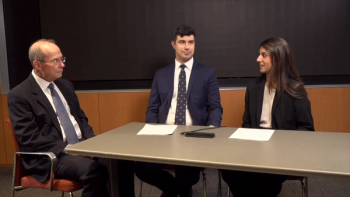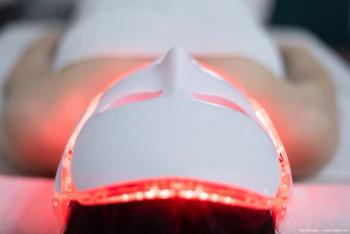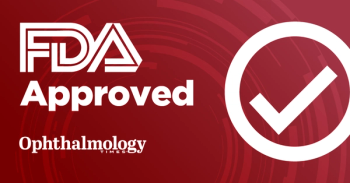
- Ophthalmology Times: November 15, 2020
- Volume 45
- Issue 19
Eliminating preop fasting leads to happier cataract patients
Change can prove to benefit individuals with diabetes, other comorbidities.
This article was reviewed by Daniel C. Terveen, MD
The seemingly simple step of eliminating the requirement to fast before
The requirement for fasting before surgery was recommended by the American Society of Anesthesiologists (ASA), which published updated guidelines in 2011 for patients undergoing general anesthesia to reduce the risk of aspiration pneumonia.
Related:
General anesthesia is the key consideration because in its absence, there is little risk of aspiration pneumonia, with the exception of upper gastrointestinal endoscopy; in those receiving light sedation, postoperative nausea and vomiting also are rare.
Finally, fasting does not guarantee gastric emptying, according to Daniel Terveen, MD.
Another important consideration is that requiring fasting by elderly patients scheduled to undergo cataract surgery alters their normal routine, which can impact those with diabetes or other comorbidities, possibly leading to dehydration and altered blood glucose levels as well as causing significant stress.
Case-control study
Terveen, along with a group of colleagues that included Chris Bender, CRNA, conducted a study to determine how the absence of preoperative fasting affected patient satisfaction with the surgical experience.
Related:
Both Terveen and Bender are with Vance Thompson Vision in Sioux Falls, South Dakota.
A total of 200 patients who received oral sedation before undergoing routine cataract surgery were included in a prospective case-control study. Half the patients followed the ASA fasting guidelines, and 100 patients were not required to fast—with the goal of determining the patient levels of comfort and the postoperative incidence rates of nausea and vomiting.
The postoperative patient satisfaction was scored on a scale from 1 to 5, with 1 indicating very dissatisfied and 5 indicating very satisfied.
“The preoperative and postoperative scores were both very high in the fasting and nonfasting groups, but we found a clinically significant difference in the preoperative satisfaction levels between the groups,” Terveen said. “The patients who did not fast preoperatively had a better experience by maintaining their normal routines and were not as concerned about the effects of stopping their medications.”
Related:
One episode of nausea and vomiting occurred in each group, and no aspiration occurred in either group.
The investigators concluded that eliminating preoperative fasting requirements increased the patient satisfaction preoperatively, with no increased risks of nausea and vomiting or aspiration.
--
Daniel Terveen, MD
e:[email protected]
Terveen has no financial interest in this subject matter.
Articles in this issue
about 5 years ago
Evaluating scleral biomechanics to pinpoint root of accommodationabout 5 years ago
FA implant outperforms anti-VEGF in DR patients lost to follow-upabout 5 years ago
Challenges to topical drop adherence after cataract surgeryabout 5 years ago
Gene therapy surgical pearls for successful outcomesabout 5 years ago
Pearls for drawing patients back to your practiceabout 5 years ago
Haptic flanging reduces IOL dislocations after cataract surgeryabout 5 years ago
AMA steps up support for gender equity in medicineabout 5 years ago
Ophthalmic practices eye private equity investorsabout 5 years ago
Oh, the people we meetabout 5 years ago
Neuro-ophthalmology, NFL connect for a touchdownNewsletter
Don’t miss out—get Ophthalmology Times updates on the latest clinical advancements and expert interviews, straight to your inbox.





























